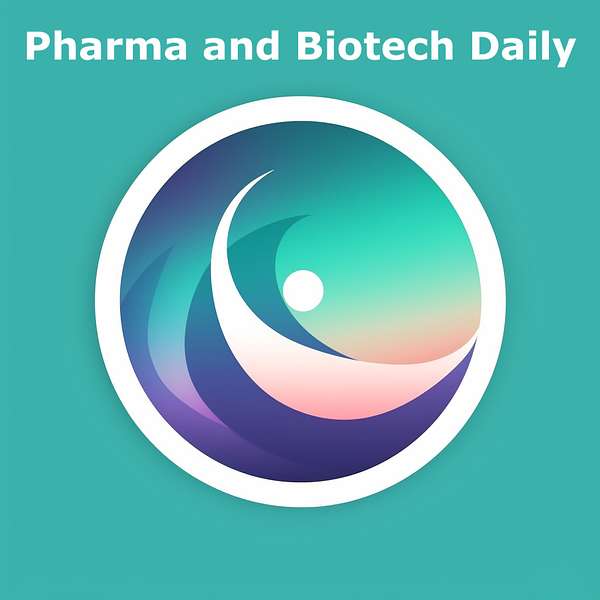
Pharma and BioTech Daily
This podcast aims to bring you a daily summary of the most relevant news in Pharma and BioTech. Check our website at: https://www.buzzsprout.com/2189790
Pharma and BioTech Daily
Biotech Breakthroughs: Transformative Acquisitions and FDA Milestones
•
Pharma Daily
•
Season 1
•
Episode 542
Good morning from Pharma Daily: the podcast that brings you the most important developments in the pharmaceutical and biotech world. Today, we're diving into several significant shifts in the industry, marked by scientific advancements, regulatory changes, and strategic corporate maneuvers.Starting with a major acquisition, Novartis has strategically purchased Avidity Biosciences, a San Diego-based biotech company specializing in muscular dystrophy treatments, for a striking $12 billion. This substantial investment underscores Novartis's dedication to expanding its neuroscience portfolio. Avidity's innovative RNA-based therapies show great promise for treating neuromuscular diseases, highlighting a broader industry trend where large pharmaceutical companies are investing heavily in late-stage biotech firms to bolster their pipelines with cutting-edge technologies. Such moves are pivotal as they align with the growing emphasis on precision medicine and the development of novel therapeutic options for conditions with limited existing treatments.In other acquisition news, Eli Lilly has expanded its gene therapy portfolio through acquiring Adverum Biotechnologies for up to $262 million. This acquisition is expected to bolster Eli Lilly’s position in the gene therapy space, particularly in ophthalmology. Gene therapy offers transformative potential by directly addressing underlying genetic causes of diseases, with Adverum’s focus on ophthalmic conditions potentially offering innovative solutions for unmet medical needs in eye-related disorders. The acquisitions by Novartis and Eli Lilly reflect broader trends within the pharmaceutical industry where companies actively seek to diversify their pipelines through mergers and acquisitions. These transactions emphasize strategic incorporation of advanced biotechnologies such as RNA therapeutics and gene therapy into development portfolios aiming to deliver breakthroughs in patient care.On the regulatory front, Bayer has achieved a milestone with the U.S. FDA approval of Lynkuet (elinzanetant), a nonhormonal medication designed to manage menopause symptoms. This approval represents a significant step forward in providing alternative treatment options to a traditionally hormone-reliant segment, emphasizing the industry's shift towards diversifying therapeutic solutions and addressing unmet medical needs. This move highlights continuous efforts to address women's health issues through new pharmacological interventions.Meanwhile, Merck's Winrevair has received an updated FDA label following successful results from the Phase 3 Zenith trial. This label expansion is anticipated to enhance its market position, potentially propelling Winrevair to blockbuster status. These developments highlight the critical role of rigorous clinical trials in validating drug efficacy and safety, which ultimately influence regulatory decisions and market dynamics.BridgeBio has also made headlines with its successful Phase 3 trial for a rare disease candidate. By demonstrating significant improvements in clinical outcomes and biomarkers, BridgeBio is poised to file for FDA approval. This reflects an increasing focus on precision medicine within the industry, particularly in addressing rare and genetic disorders.In diabetes management news, Innovent and Eli Lilly’s mazdutide has outperformed Novo Nordisk’s semaglutide in a head-to-head study focused on glucose regulation and weight loss. As a GLP-1/glucagon dual receptor agonist, mazdutide offers broader therapeutic effects, showcasing the competitive landscape in metabolic disorders where novel mechanisms are vying for superiority.Regulatory activities remain pivotal, as demonstrated by Syndax receiving a second indication for its leukemia drug Revuforj. Such expansions underscore the importance of ongoing clinical research and regulatory engagement in maximizing a drug's therapeutic reach.N